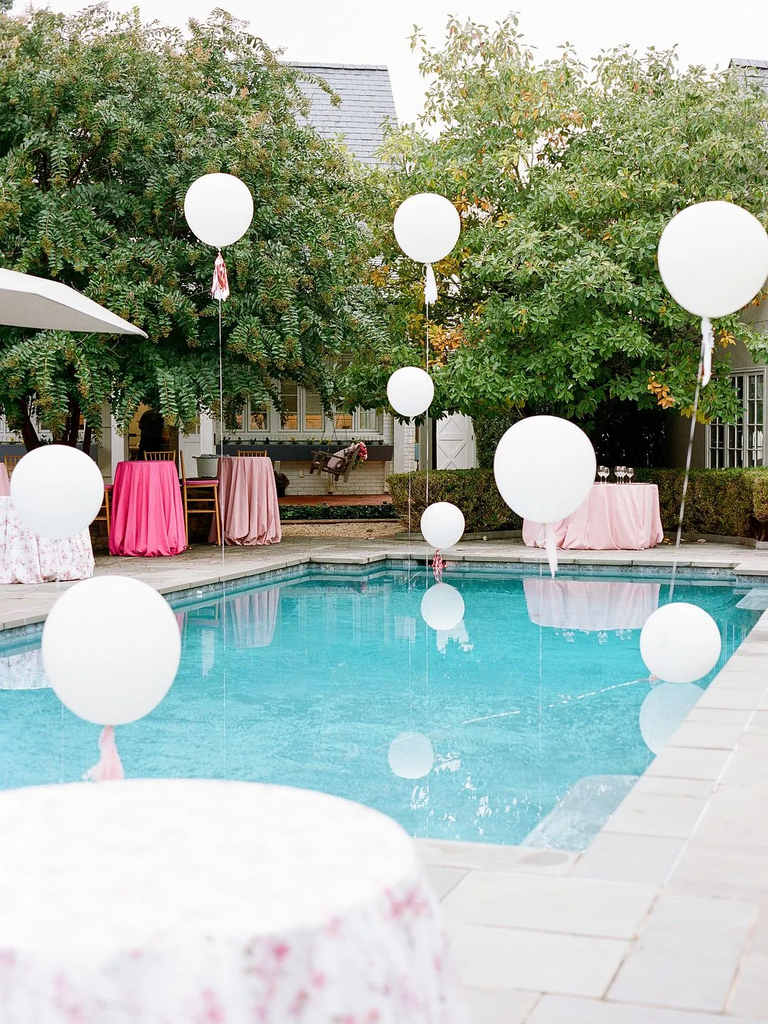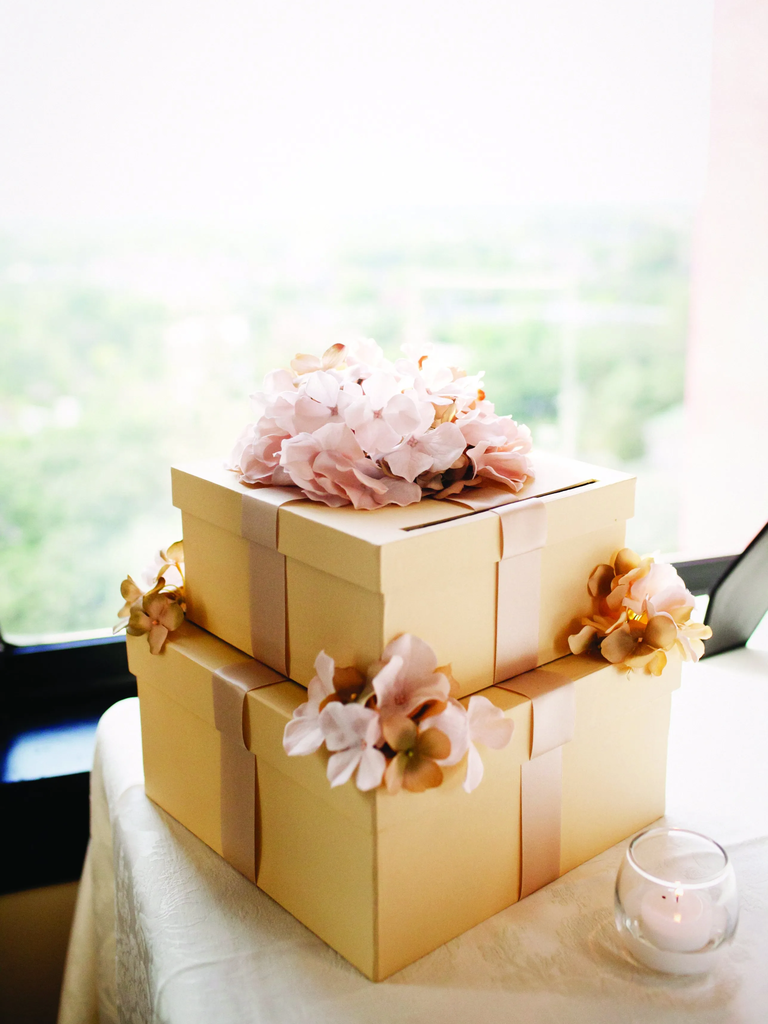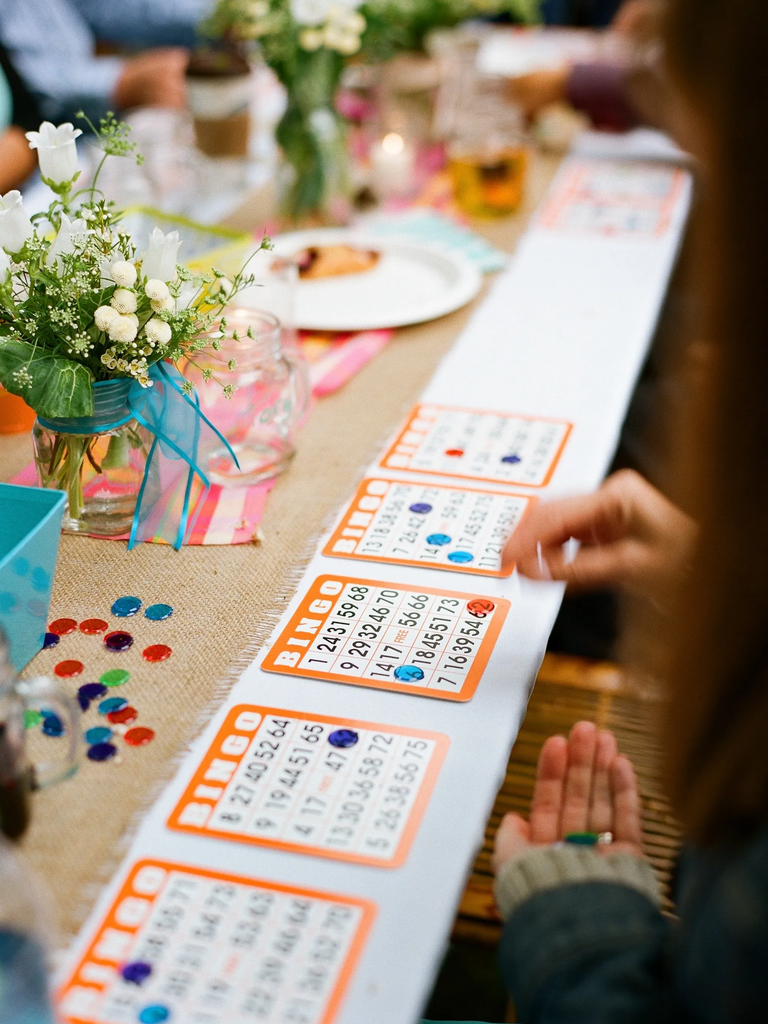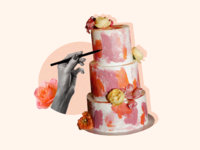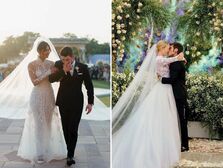What's the Difference Between a Wedding Shower and a Bridal Shower?
Showers are among the most popular prewedding events, giving guests the opportunity to celebrate one or both of the soon-to-be-weds before the big day. In fact, according to our Real Weddings Study, 67% of respondents celebrated with a wedding shower before their wedding day. You may have heard the terms "bridal shower" and "wedding shower" tossed around, but is there a difference between the two? Turns out, yes!
"Essentially, a wedding shower is a modern twist on the traditional bridal shower," says Melissa Weiler, owner and principal designer of Persnickety Invitation Studio, a custom wedding stationery business based in York, Pennsylvania. If you're planning a couples' wedding shower or still deciding which type of party best matches your needs, here's the full rundown of the differences between a wedding shower vs. bridal shower.
In this article:
- What Is a Wedding Shower?
- What Is the Purpose of a Wedding Shower?
- Can You Have Both a Wedding Shower and a Bridal Shower?
The Differences Between a Wedding Shower vs. a Bridal Shower:
Hosts | Guests | Timing | Venue | Gifts | Activities
What Is a Wedding Shower?
The wedding shower is an opportunity for the couple's closest relatives and friends to meet and celebrate before the wedding. The party takes place a few weeks or months before the wedding and typically involves light hors d'oeuvres, games and watching the couple open their registry gifts.
The meaning and concept of a wedding shower is pretty similar to a bridal shower, with the guest list being one of the main differences.
"Historically, the bridal shower was an opportunity for guests—typically the female friends and family members of the bride—to help her assemble what she might need to set up her new home: kitchen items, linens and bedding, and china and flatware," says Weiler, who has won numerous awards since beginning her career as a graphic designer in 1994. "Nowadays, with many couples already living together before the wedding, showers have evolved to become a celebration of the couple, shared by friends and family of both."
What Is the Purpose of a Wedding Shower?
The purpose of a wedding shower is to "shower" the couple with love, well-wishes and wedding gifts before their special day. Guests who are invited to the shower usually buy a gift from the couple's wedding registry and bring it to the party for the to-be-weds to open. And while the bridal shower is traditionally only for women guests, a couples wedding shower or coed wedding shower is a great chance for people from both sides to meet and mingle.
Who Hosts and Pays
The first step of planning any shower is choosing the host or hosts. These loved ones will not only plan, but pay for, the majority of the shower. Here's who typically hosts—and pays for—the wedding shower or bridal shower.
Bridal Shower Host
The bridal shower is traditionally planned and hosted by the bridal party, led by the maid of honor. In the past, Family members were discouraged from hosting the bridal shower, as it seemed like a direct plea for gifts. However, in recent years, the bridesmaids often focus their efforts on planning the bachelorette party, while the bride's close family members take on the bulk of bridal shower planning.
"In the age of busy schedules and cross-country travel for weddings, couples can be reluctant to add shower planning to their wedding party's responsibilities, so we often see the mother of the bride taking the reins on the hosting the bridal shower at her home," says Weiler. "It's not uncommon for a few of the MOB's closest friends to assist with this—often this group has raised their children together and the bridal shower is an opportunity for them to share in this milestone with their friend and her daughter." The bride's future mother-in-law and/or her friends may also take the lead in planning a bridal shower.
Wedding Shower Host
A couple's shower can be planned by any of the wedding party members, friends and/or family. The responsibility can also be shared among loved ones depending on who else is hosting other prewedding events, says Sumeta Satija, founder and managing director of One H'ART Events, a wedding planning, coordination and event design company based in Atlanta, Georgia. "We have seen a trend over the recent years of an engagement party being hosted by one set of parents and a wedding shower being hosted by the other, especially if the families live in different states or countries," says Satija.
Guests: Who Is Invited?
While the guest lists may differ somewhat between a wedding shower and a bridal shower, one shower etiquette rule remains: Those invited to any shower must be invited to the actual wedding. However, not all wedding guests need to be invited to the shower.
Bridal Shower Guests
The bridal shower guest list typically includes female members of the wedding party, as well as other close family members and friends. "Bridal shower guests usually—although not always—are the female friends and family of the bride: cousins, college roommates, best friends and sisters," explains Weiler. "It's also typical for the bride's mother to invite her friends and even co-workers; many of these women have been by her side as her daughter was growing up and want to share in the happiness." Usually, anywhere from 10 to 50 guests are invited to a bridal shower.
Wedding Shower Guests
A wedding shower's guest list is gender-inclusive and typically bigger than bridal showers, with the guest count ranging from 30 to 50 guests (or more). "The wedding shower will be a larger group of close friends of the parents, close friends of the couple, and close relatives to the host family," says Satija.
Timing: When to Have
Wedding showers and bridal showers typically take place within the same timeframe—anywhere from two weeks to three months before the wedding day. The parties are often on a Saturday or Sunday and usually last between two and four hours. However, the time of day when these events take place tends to be the main difference between a bridal shower and wedding shower.
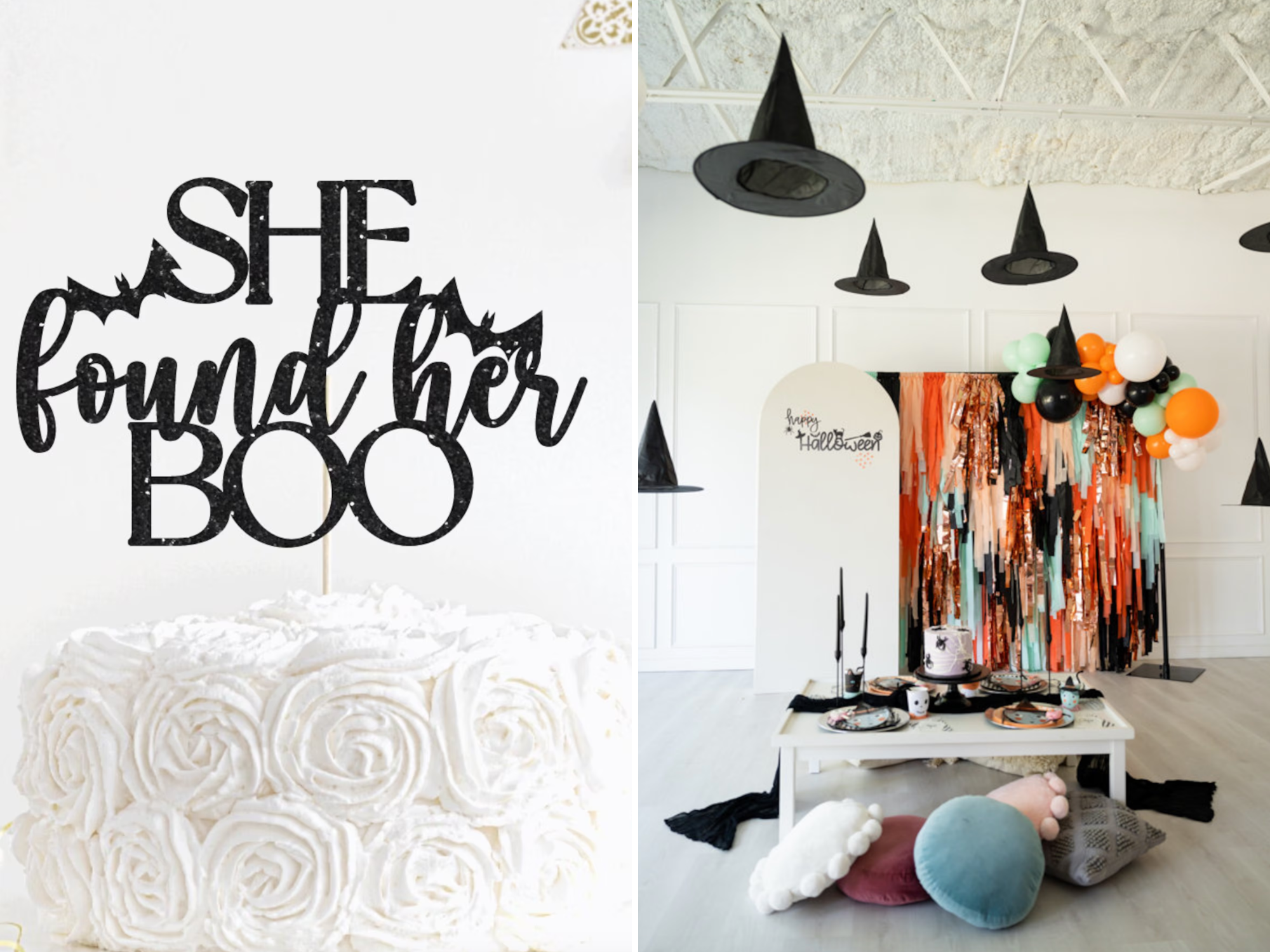

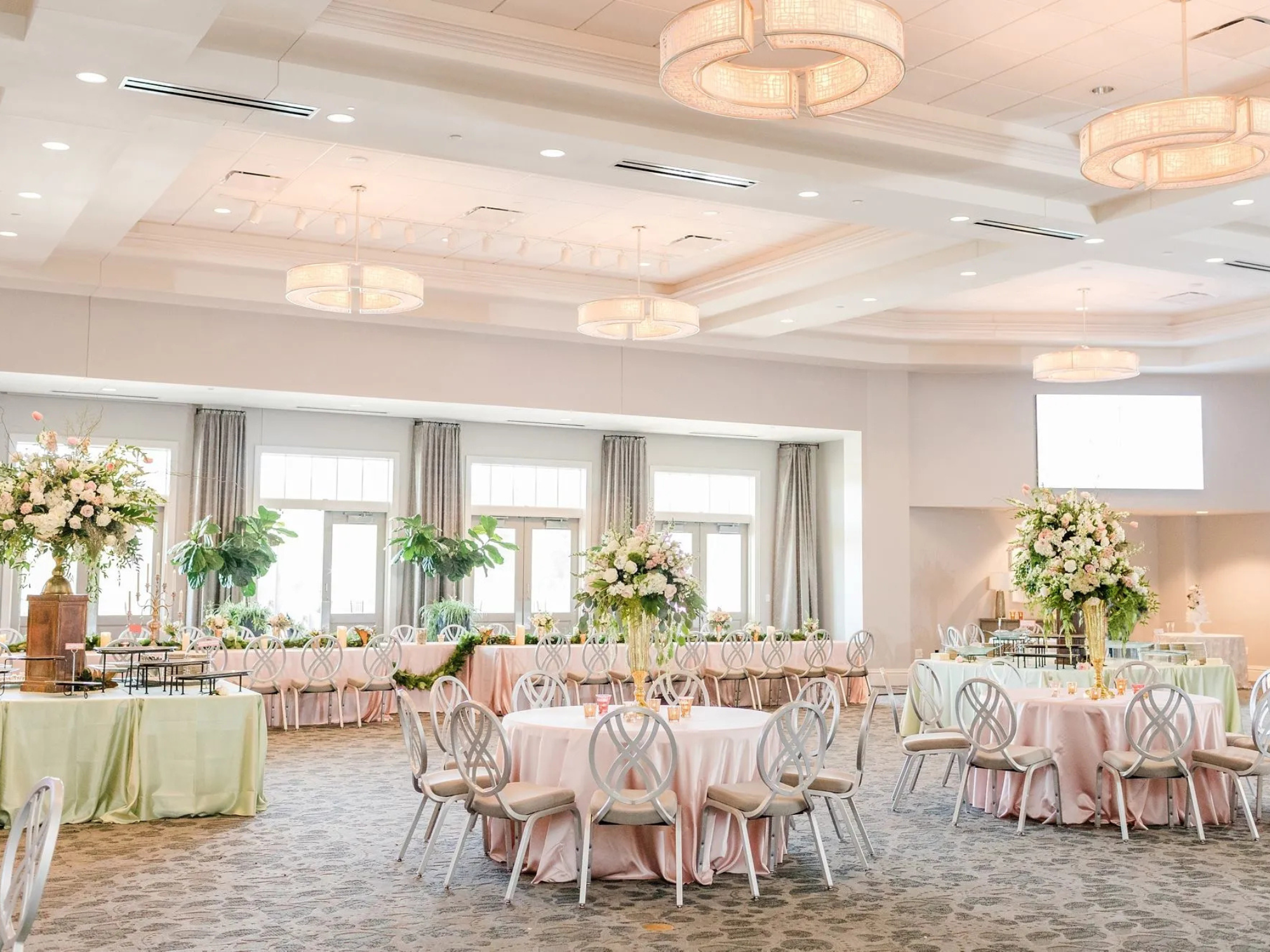
Bridal Shower Timing
A bridal shower is often a brunch, lunch or afternoon tea event, with a start time usually between 10:00 a.m. and 1:00 p.m. This leaves enough time for a variety of activities, gift giving and more, with everyone home before dinnertime sets in.
Wedding Shower Timing
The timing of a wedding shower is a bit more flexible. While some wedding showers take place during the day, many are evening events centered around happy hour or dinner. This also encourages the events to be a little more lively, often with cocktails or some type of entertainment.
Venue
Once you have an idea of the guest count and a timeframe for when the shower will occur, it's time to choose a venue. Your location will depend on the type of event, but according to Weiler: "Both types of showers can easily take place at either a residence or a venue, but most often, bridal showers are held at the host's home and wedding showers are at a venue."
Bridal Shower Venues
"The host's home, a local cafe or a tea room are the most popular venues for bridal showers," says Tonya Hoopes, founder and wedding planner at Hoopes Events in Park City, Utah. "If you are doing an activity-centered shower, it might be held at a nail salon, painting studio or location that works with the activity."
Wedding Shower Venues
While a loved one's home is certainly an appropriate wedding shower location, these events are more often held elsewhere, like a private event space at a favorite restaurant or bar. "Since many wedding showers are planned by the couple's friends and duties are being shared, it makes more sense to some to host it at a venue where the hosts can split the costs and cleanup duty doesn't fall to any one person or group," says Weiler.
Gifts
Gift giving is one of the most important activities that takes place during a shower, whether it's a bridal shower or a wedding shower. However, the gifts tend to differ between the two types of prewedding parties.
Bridal Shower Gifts
Wedding registry gifts are standard for the bridal shower. But guests can also bring personal gifts for the bride, such as jewelry, lingerie, pampering and self-care products, or something to set up her home after marriage, says Marci Guttenberg, certified event planner with more than 30 years of experience and founder of An Affair to Remember by Marci in Fort Lauderdale, Florida. "Close relatives may also opt to provide family heirlooms passed down from generation to generation," says Guttenberg.
There may also be a theme where guests are asked to bring certain types of gifts—gifts for the kitchen for a kitchen shower, lingerie for a lingerie shower, etc.
Wedding Shower Gifts
In contrast to the bridal shower, wedding shower gifts should be items that the couple can use and enjoy together. These are typically taken from the wedding registry, but guests can also choose gifts that speak to the couple's relationship.
"At a wedding shower, the couple will receive gifts that can be shared as a couple. For instance, household items, linens, etc.," says professional wedding planner Sheavonne Harris, founder of Events by Sheavonne in New York City. "Nowadays, monetary gifts like gift cards are also common."
Adds Weiler: "Gifts for the wedding shower tend to reflect the personality and interests of the couple: barware for the couple who enjoys entertaining, or a gift certificate for zip lining for the couples who love adventure."
Activities
Mingling, eating and drinking are mainstays of most bridal and wedding showers, but there are other activities that usually take place, from games to gift opening and more.
Bridal Shower Activities
According to Weiler, bridal showers tend to follow a pretty structured timeline—for example, greeting, food, gifts, cake and games. While the bride opening gifts in front of the assembled guests is a traditional bridal shower activity, it's not mandatory. "Some brides resist being the center of attention for so long, however, and opt for a 'display shower'—a shower in which gifts are brought unwrapped and displayed on a table, giving the bride more time to socialize with her guests," Weiler says.
Bridal shower games and icebreakers (such as trivia about the bride or couple and the toilet paper wedding dress contest) are popular, as are activities like guests sharing marriage advice or toasting the couple. The bride's partner may make an appearance toward the end of the event and partake in an activity, like the ever-popular wedding shoe game. Some bridal showers are centered around an activity, such as a cooking demonstration, painting class or spa services, which can help keep guests busy and entertained.
Wedding Shower Activities
"Wedding showers are by nature more organic and most often take the shape of a relaxed social gathering, with fluid seating, dinner stations and passed appetizers—allowing for plenty of mingling—and guests occasionally stepping up to toast the couple," Weiler says. "While most attendees still bring a gift, many couples opt to either open gifts as they receive them, or to collect and open them later."
Can You Have Both a Wedding Shower and a Bridal Shower?
A couple can have both a wedding shower and a bridal shower, but there are a few caveats. The events should have different hosts, different guest lists, and be held in different locations. "An example of this is a bridal shower is thrown where the bride lives by the maid of honor, and then another bridal shower is thrown by the future mother-in-law in a different city," says Hoopes. "While it is okay to have multiple showers, you want to make sure you are not inviting the same guests to both showers as this is seen more as a gift grab than a celebration of the couple."
Samantha Iacia contributed to the reporting of this article.




